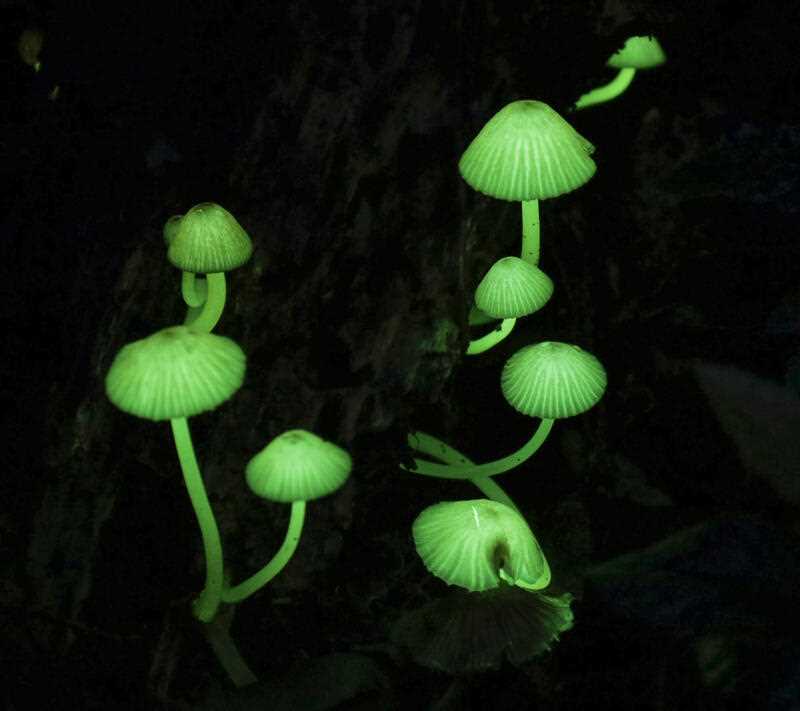The hookah-smoking caterpillar in Alice in Wonderland jumps off a mushroom and yawns.
“One side will make you grow taller, the other side will make you grow shorter,” he says to Alice about the mysteries of the fleshy fruit body.
The strange allure of fungi has always captured imaginations, appearing in literature, folklore and fairytales for millennia.
Now, long after the ancient Egyptians considered mushrooms a symbol of immortality, the world is looking to them to protect the planet.
Ecologist Alison Pouliot, who has studied fungi for two decades, has seen an enormous surge in interest in recent years.
She describes them as the “third forgotten kingdom” behind flora and fauna, and says there is much to be discovered about their vital role in our ecosystems.
They are the foundation of fertile soil, help plants and crops access nutrients and water, recycle organic matter and create hollowed out habitats for wildlife.
“The landscape is in serious trouble after several hundred years of European agriculture,” Ms Pouliot tells AAP at a mushroom survey in Cowra, in central western NSW.
“We’ve really damaged soils and waterways, and we’re looking for alternatives.”
The enduring mystique has helped reignite fungi fanaticism, she says.
“Some mushrooms are deadly, some are edible, some are psychotropic.
“They’re so strange and peculiar, and we still can’t quite explain why they suddenly appear.”
Fungi’s moment is translating into big business, as consumers demand sustainable products.
French luxury accessories brand Hermes and fashion designer Stella McCartney are using the threaded root structure of fungi, known as mycelium, as vegan leather.
Mycelium can be used for bricks, a biodegradable version of concrete which is said to enhance insulation and naturally resist mould and mildew.
Australian start-up Fable Food, which is securing up to $25 million in a new round of investor funding, has tapped into the texture and taste of shiitake mushrooms as a meat alternative.
The company’s products have been picked up widely by both restaurants and fast food chains. Co-founder Michael Fox says Fable’s mission is to move away from industrial animal agriculture.
“Mushrooms are an incredibly efficient way to produce food,” he says.
“They’re grown indoors, they use very little water and very little space.
“They’re an amazingly sustainable way to grow food and the output is much healthier for us to eat.
“Our goal is to make food that tastes better than meats and it’s cheaper than meats.”
Mr Fox says the fungi trend was evident on a recent trip to Los Angeles, where mushrooms were on every menu, in tea, coffee and lining the shelves in health food stores.
A world away in Cowra, a group of 15 citizen scientists gathers on a chilly Saturday to hunt for mushrooms in a square of protected box gum grassy woodland.
The gums tower over fallen pines and bright green superb parrots twitter in the branches.
“Bingo! Over here,” one of the group yells upon the discovery of scarlet brackets, alien-like neon mushrooms that grow on dead wood.
The juicy mushrooms hold significance for local Indigenous people, who used them for food, medicine and dye.
The foragers carefully dig up fungi with names like earthstars, puffballs, jellies and an Australian parasol, nicknamed “Labrador’s nose” for its soft brown texture.
Ms Pouliot invites the group to smell the mushrooms, which can have scents of bubblegum, apricots, curry powder or bandaids and chlorine.
There are countless species of fungi under our feet, in the trees, in the air and around our houses, many of which remain unidentified.
Ms Pouliot says research and conservation is heavily reliant on naturalists, like the group on the Central Tablelands Local Land Services and Mid Lachlan Landcare survey.
“People often ask me ‘where do I find fungi?’ and I think ‘where don’t you’,'” she says.
“They’re not just in root systems, they’re growing within the tree, on the bark, within the cells of the leaves themselves. They are absolutely ubiquitous and widespread.
“We’re really questioning the way we have historically understood how nature works.”
By Stephanie Gardiner in ORANGE



